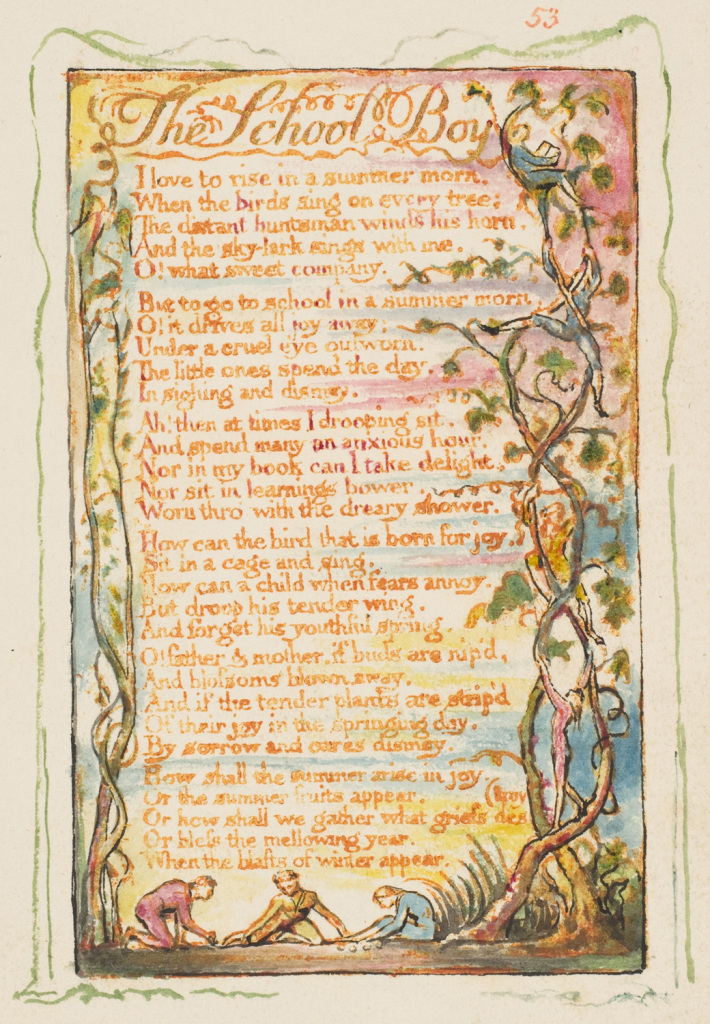
“How can the bird that is born for joy
Sit in a cage and sing?”
From William Blake’s poem, “The Schoolboy,” collected in Songs of Innocence and of Experience (1789).
The full poem:
I love to rise in a summer morn,
When the birds sing on every tree;
The distant huntsman winds his horn,
And the skylark sings with me:
O what sweet company!
But to go to school in a summer morn,—
O it drives all joy away!
Under a cruel eye outworn,
The little ones spend the day
In sighing and dismay.
Ah then at times I drooping sit,
And spend many an anxious hour;
Nor in my book can I take delight,
Nor sit in learning’s bower,
Worn through with the dreary shower.
How can the bird that is born for joy
Sit in a cage and sing?
How can a child, when fears annoy,
But droop his tender wing,
And forget his youthful spring!
O father and mother if buds are nipped,
And blossoms blown away;
And if the tender plants are stripped
Of their joy in the springing day,
By sorrow and care’s dismay,—
How shall the summer arise in joy,
Or the summer fruits appear?
Or how shall we gather what griefs destroy,
Or bless the mellowing year,
When the blasts of winter appear?
Blake is stressing the now-ancient problems of education that is (a) disconnected from the child’s actual values, (b) artificial in an anti-natural way, and (c) compulsory. Alternatives that stress (a) building upon children’s actual healthy values, (b) develop institutions like schools that complement rather than alienate nature, and (c) make respect for choice foundational are explored in my series on Philosophy of Education, especially Parts 8, 11, and 12.
Related: Maya Angelou, I Know Why the Caged Bird Sings.